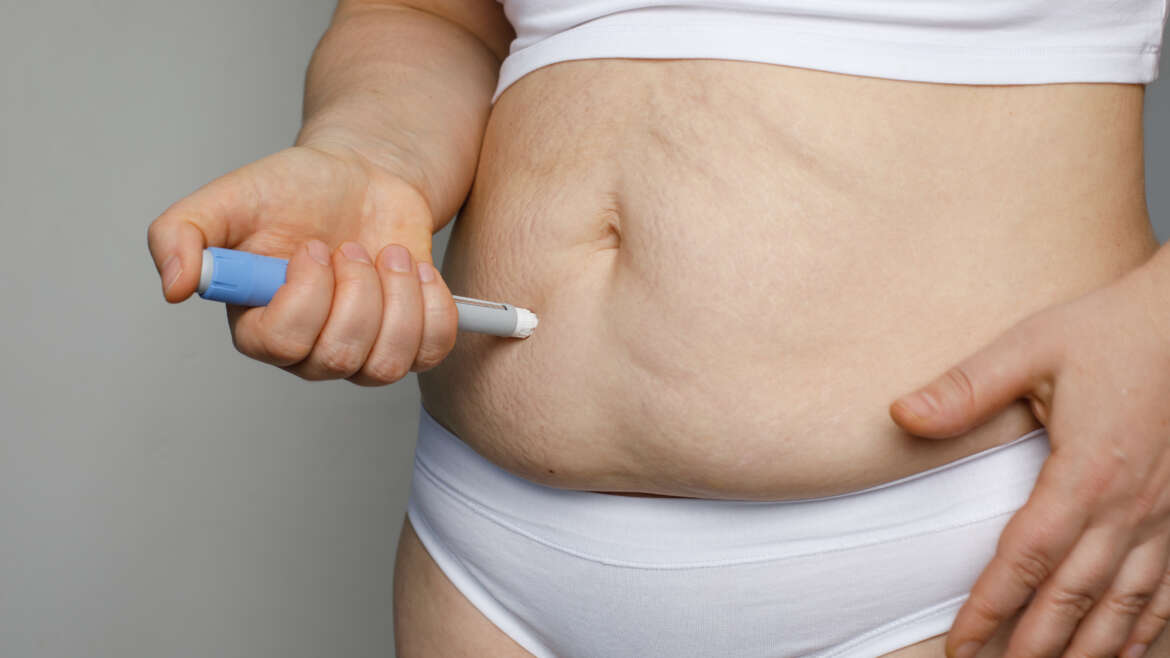Semaglutide, which you may know by its brand names like Ozempic or Wegovy, is a medication originally developed to improve the symptoms of type 2 diabetes. While it’s effective in treating this condition, one of the unintended benefits of regular semaglutide use is weight loss. Over the years, semaglutide has been increasingly prescribed for its weight loss benefits. Weight loss surgery is another option to quickly reduce weight. According to Dr. MyChi Le of Plastic & Reconstructive Surgery a Division of U.S. Dermatology Partners, “Both semalgutide and weight loss surgery deliver fast and effective weight reduction. However, they have something less positive in common as well. Losing large amounts of weight quickly can lead to other concerns like loose or sagging skin, stubborn fat deposits, and disproportionality in the body’s shape. For people struggling to enjoy their body’s new look due to the negative effects of rapid weight loss, body contouring is an excellent option to smooth and firm the body. The number one question I get about body contouring is simple – how soon can I schedule treatment? The answer can be complicated, but a plastic surgeon can help you find the perfect time to schedule body contouring after weight loss.” In this blog, Dr. Le discusses what body contouring is, how it improves appearance after weight loss, and what to expect from this procedure.
What is Body Contouring?
Body contouring is a term used to describe a number of procedures that smooth, firm, reshape, and tighten the body. Body contouring treatments are personalized to the individual’s needs. They may include cosmetic surgery procedures like tummy tucks, breast lifts, arm lifts, thigh lifts, and facelifts. Following significant weight loss, the body will change in a number of ways, especially when weight loss occurs quickly. Body contouring may be recommended to tighten loose skin, smooth folds or sagging skin, and reshape stubborn stores of excess fat.
Factors to Consider Before Body Contouring After Weight Loss
Before scheduling body contouring, Dr. Le recommends, “There’s no one answer to the question of when to begin post weight loss body contouring. Instead, it’s important to consult with a board-certified plastic surgeon. They can perform an examination, answer questions, and help you set and achieve specific surgical goals. This is especially important for those who are scheduling body contouring procedures following weight loss since the changes to the body and recommended treatment vary dramatically.” Some of the factors you should consider when discussing body contouring with your plastic surgeon include:
- Goal weight – it’s important to be at or very close to your reasonable goal weight before starting body contouring since additional weight loss may make retreatment necessary.
- Weight stability – in addition to being near the goal weight, it’s also important to work toward stabilized weight. Fluctuations in weight, higher or lower, can undo the results of body contouring.
- Age – as we age, skin elasticity, strength, and thickness diminish. That means healing may take longer and results may be more difficult to achieve.
- Skin health – it’s important for the skin to be completely healed and settled at its new size and shape before body contouring treatments begin. Additionally, you should ensure that there are no active skin infections, healing wounds, or flareups in chronic skin conditions before scheduling surgery.
- Amount of weight lost – while the loss of any amount of weight quickly can cause changes in the shape of the body, significant weight loss may mean it takes longer for the skin to settle, causing additional challenges to the success of body contouring procedures.
- General health – individuals are more likely to make a full recovery following any type of surgery if they are in relatively good overall health. For this reason, your plastic surgeon will review your medical history and medications prior to recommending surgery.
How Long Should You Wait After Ozempic (Semaglutide) or Weight Loss Surgery?
Dr. Le recommends, “At bare minimum, I tell my patients they need to wait for at least six months after starting semaglutide treatment or undergoing weight loss surgery to begin body contouring. At the six-month mark, I will usually ask them to come in for an evaluation, so I can perform an examination and determine whether or not it’s a good time to start planning body contouring treatment. If reasonable weight loss goals aren’t met, weight fluctuations continue, general health is poor, or I find any other reason that surgery may not be successful, I’ll recommend they return for a follow up visit, so I can reexamine them. The best thing to do is follow your plastic surgeon’s advice to ensure the best results.”
Preparing for Body Contouring Surgery Post Weight Loss
Before body contouring surgery, you should complete the following preparatory steps:
- Consult with your plastic surgeon – during a consultation, your surgeon can provide instructions for how to prepare for your procedures. You should follow these instructions closely.
- Receive a health assessment – you may also need to consult with your general physician to be optimized for surgery, get lab work done, or adjust your medications to ensure optimal chances for successful body contouring procedures.
- Improve lifestyle habits – you may want to consult with a nutritionist to improve diet, develop an exercise routine, quit smoking, significantly reduce or eliminate substance use, and otherwise be committed to living a healthy lifestyle to sustain your results.
- Prepare your home for recovery – arrange for people to help, have meals frozen, have prescriptions filled, and otherwise make plans to ensure you can safely heal at home.
Recovery and Post-Surgery Care Tips
Discussing recovery time and success tips following body contouring, Dr. Le says, “First and foremost, all surgeries have associated risks. However, choosing a qualified and board certified professional to perform cosmetic surgeries will significantly diminish this risk. Additionally, following your surgeon’s aftercare instructions will promote healing and help you avoid infection and other post-operative risks.”
Each person is different and should follow their individual aftercare instructions, but some tips to improve the healing process for everyone include:
- Replace surgical dressings, apply medications, and otherwise perform wound care as instructed.
- Use all oral and topical medications as prescribed to promote healing.
- Schedule follow up exams as directed and make sure you attend them. If there are issues with recovery, they are likely to be noticed and treated at these visits.
- Don’t hesitate to reach out to your cosmetic surgeon between visits if there are signs of a potential concern like heavy bleeding, fever, swelling, or increasing pain.
- Allow yourself plenty of time to rest and recover. The amount of downtime you need will vary based on the procedures you elect as part of your body contouring treatment, but at the very least plan to spend a week relaxing and allowing your body to heal. Introduce activity gradually as tolerated.
Body Contouring Delivering Final Touches After Weight Loss
According to Dr. Le, “Each person is unique. The way one person’s body responds to weight loss will never be exactly like another’s. It’s important to consult with a plastic surgeon to get personalized recommendations for body contouring and other procedures to deliver the final touches to help you achieve the flawless results you’re striving for.”
Schedule a Plastic & Reconstructive Surgery Consultation
When you’re ready to explore your body contouring options, don’t hesitate to reach out to the knowledgeable Plastic & Reconstructive Surgery team. Our experienced board-certified plastic surgeons offer a variety of treatments that help patients achieve their desired appearance, improve confidence, and generally feel their best. Take a few moments to complete our scheduling request form, and we’ll be in touch to finalize the details of your upcoming visit.

